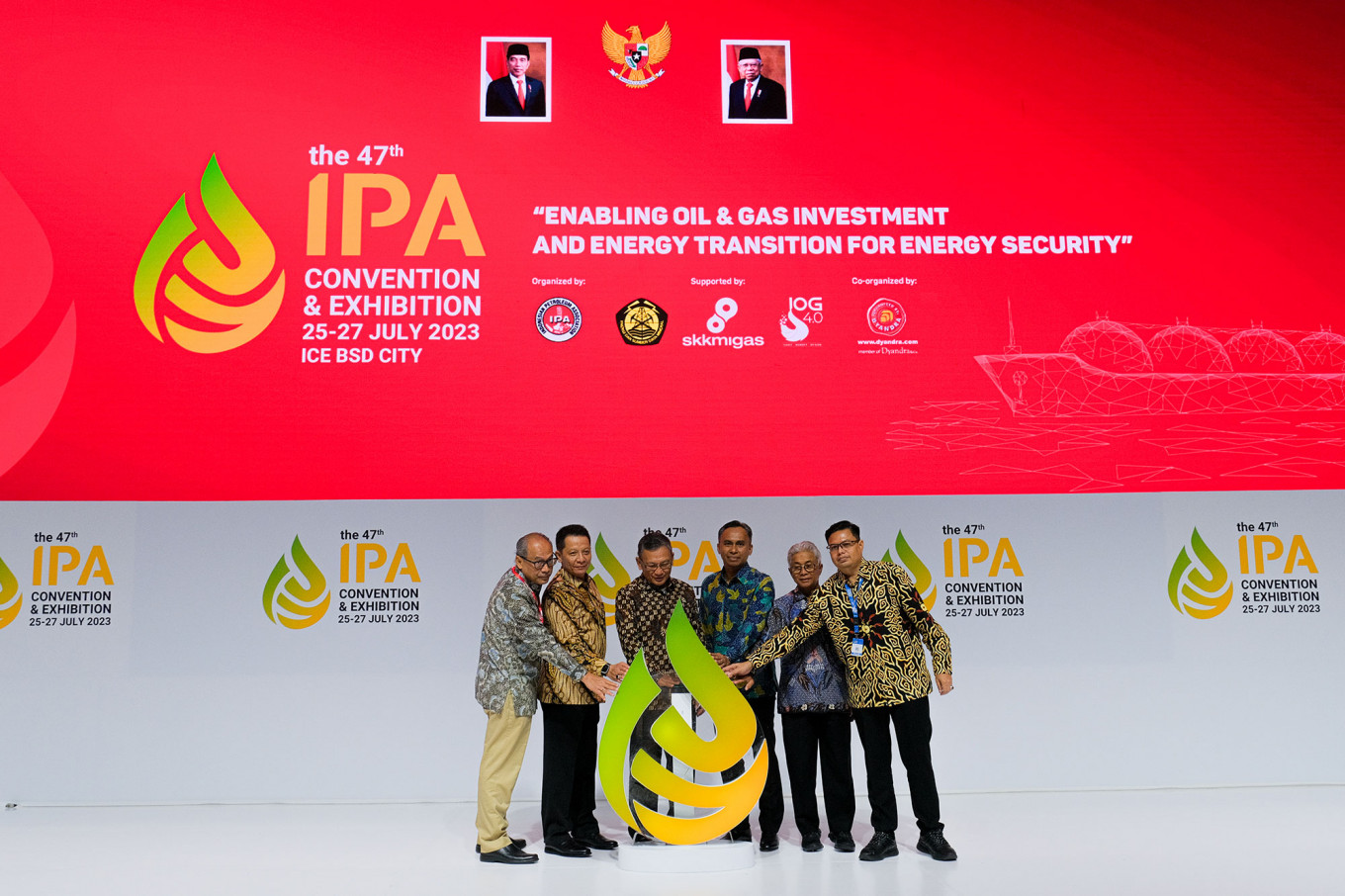Popular Reads
Top Results
Can't find what you're looking for?
View all search resultsPopular Reads
Top Results
Can't find what you're looking for?
View all search results2023 IPA Convex places utilization of CCU/CCUS at the forefront
Change text size
Gift Premium Articles
to Anyone
E
nergy derived from oil and gas remains an essential component that powers the Indonesian economy, despite calls to accelerate the country’s energy transition.
According to data from BP statistical review, oil production continued to increase from 88.6 million barrels per day (bpd) in 2012 to 93.8 million bpd in 2022 to meet energy needs. Meanwhile, gas production also increased around 20 percent over the last 10 years, with average gas consumption increasing 1.7 percent per year.
Opening the 2023 IPA Convention and Exhibition (Convex) on Tuesday (25/7/2023), Energy and Mineral Resources Minister Arifin Tasrif said the BP data showed that the oil and gas sector played an important role in meeting the demand for affordable energy, especially from the transportation and manufacturing sectors, in line with the growth in various economies, including Indonesia.
The annual IPA Convex, themed “Enabling Oil & Gas Investment and Energy Transition for Energy Security”, runs for three days at the Indonesia Convention Exhibition (ICE) in Indonesia Convention Exhibition City, Tangerang regency.
The growing energy needs must be met in parallel with improvements to environmental quality, namely by reducing carbon emissions from oil and gas production, said Arifin.
He also suggested several ways to ensure that the upstream oil and gas sector would continue to grow to meet demand while playing a role in the efforts to reduce carbon emissions. One of the easiest ways to reduce greenhouse gas emissions from operational activities was efficient energy use.
"Besides that, there is also reducing exhaust gas [emissions], regulating methane gas emissions and in parallel, increasing the use of low-carbon power plants utilizing new and renewable energy sources,” he said.
“The next step is to increase the use of gas, initiate the use of efficient technology and develop low-carbon mobility, such as the use of electric vehicles, biofuels and LNG [liquefied natural gas].”
Arifin also pointed to the need to prioritize hydrogen development, as hydrogen technologies could answer to the low-emissions challenges of future industries. Hydrogen development was supported by the oil and gas industry, which had the experience, qualifications and capabilities to develop and produce hydrogen.
He emphasized that implementing carbon capture storage (CCS) and carbon capture utilization and storage (CCUS) were most crucial to the upstream oil and gas sector at the moment. This was also in line with the recently issued government regulation on CCS and CCUS.
"The regulation describes CCS and CCUS as promising technologies for reducing carbon emissions in order to pursue net zero emissions (NZE) by 2060 or sooner," said minister Arifin.
At present, Indonesia has 15 CCS and CCUS projects underway, including the CCS Gundih Enhanced Gas Recovery (EGR) project in Central Java and the CCUS Sukowati project in East Java. The projects’ transformational benefits have been clear in even the early stages.
In addition, Arifin said that a CCUS project to be implemented soon in Tangguh, West Papua, targets reducing carbon emissions by 25 million tonnes and increasing gas production by up to 300 billion standard cubic feet (BSCF) in 2035. He also revealed that the project aimed to go onstream in 2026.
IPA President Yuzaini Bin Md Yusof said Indonesia was among the countries moving fast in implementing CCS and CCUS, though he noted that the effort needed supporting regulations for carbon storage readiness, such as fiscal policies, tax credit and carbon pricing rules.
"Many high-risk projects require regulatory support, with many CCS/CCUS projects depending on regulatory support and commercial attractiveness. There is still a lot of work to be done," Yuzaini said.










